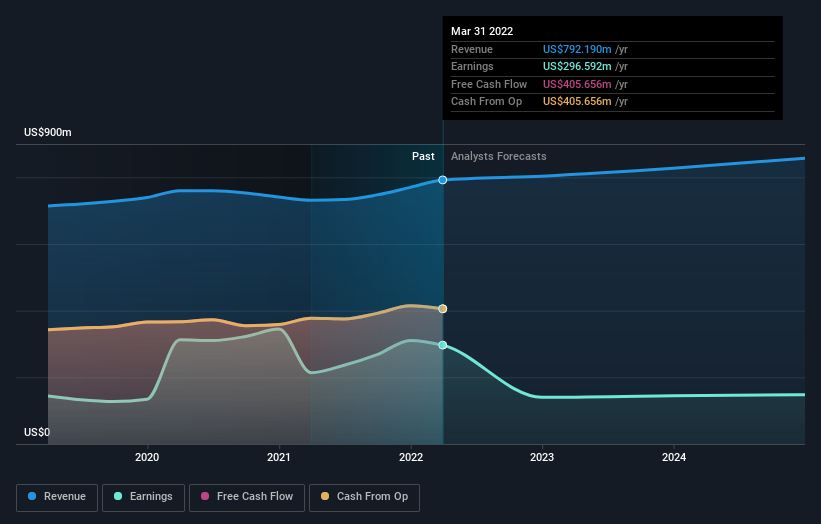The five-year underlying earnings growth at Highwoods Properties (NYSE:HIW) is promising, but the shareholders are still in the red over that time
Ideally, your overall portfolio should beat the market average. But every investor is virtually certain to have both over-performing and under-performing stocks. At this point some shareholders may be questioning their investment in Highwoods Properties, Inc. (NYSE:HIW), since the last five years saw the share price fall 21%. Even worse, it's down 14% in about a month, which isn't fun at all. However, we note the price may have been impacted by the broader market, which is down 9.5% in the same time period.
If the past week is anything to go by, investor sentiment for Highwoods Properties isn't positive, so let's see if there's a mismatch between fundamentals and the share price.
View our latest analysis for Highwoods Properties
There is no denying that markets are sometimes efficient, but prices do not always reflect underlying business performance. One way to examine how market sentiment has changed over time is to look at the interaction between a company's share price and its earnings per share (EPS).
During the unfortunate half decade during which the share price slipped, Highwoods Properties actually saw its earnings per share (EPS) improve by 18% per year. Given the share price reaction, one might suspect that EPS is not a good guide to the business performance during the period (perhaps due to a one-off loss or gain). Or possibly, the market was previously very optimistic, so the stock has disappointed, despite improving EPS.
Generally speaking we'd expect to see stronger share price increases on the back of sustained EPS growth, but other metrics may hold a clue to why the share price performance is relatively modest.
We note that the dividend has remained healthy, so that wouldn't really explain the share price drop. It's not immediately clear to us why the stock price is down but further research might provide some answers.
The image below shows how earnings and revenue have tracked over time (if you click on the image you can see greater detail).
We know that Highwoods Properties has improved its bottom line lately, but what does the future have in store? If you are thinking of buying or selling Highwoods Properties stock, you should check out this free report showing analyst profit forecasts.
What About Dividends?
It is important to consider the total shareholder return, as well as the share price return, for any given stock. The TSR incorporates the value of any spin-offs or discounted capital raisings, along with any dividends, based on the assumption that the dividends are reinvested. It's fair to say that the TSR gives a more complete picture for stocks that pay a dividend. As it happens, Highwoods Properties' TSR for the last 5 years was -1.7%, which exceeds the share price return mentioned earlier. This is largely a result of its dividend payments!
A Different Perspective
The total return of 6.8% received by Highwoods Properties shareholders over the last year isn't far from the market return of -6.9%. So last year was actually even worse than the last five years, which cost shareholders 0.3% per year. It will probably take a substantial improvement in the fundamental performance for the company to reverse this trend. It's always interesting to track share price performance over the longer term. But to understand Highwoods Properties better, we need to consider many other factors. For example, we've discovered 3 warning signs for Highwoods Properties (2 shouldn't be ignored!) that you should be aware of before investing here.
If you like to buy stocks alongside management, then you might just love this free list of companies. (Hint: insiders have been buying them).
Please note, the market returns quoted in this article reflect the market weighted average returns of stocks that currently trade on US exchanges.
Have feedback on this article? Concerned about the content? Get in touch with us directly. Alternatively, email editorial-team (at) simplywallst.com.
This article by Simply Wall St is general in nature. We provide commentary based on historical data and analyst forecasts only using an unbiased methodology and our articles are not intended to be financial advice. It does not constitute a recommendation to buy or sell any stock, and does not take account of your objectives, or your financial situation. We aim to bring you long-term focused analysis driven by fundamental data. Note that our analysis may not factor in the latest price-sensitive company announcements or qualitative material. Simply Wall St has no position in any stocks mentioned.

 Yahoo Finance
Yahoo Finance 
